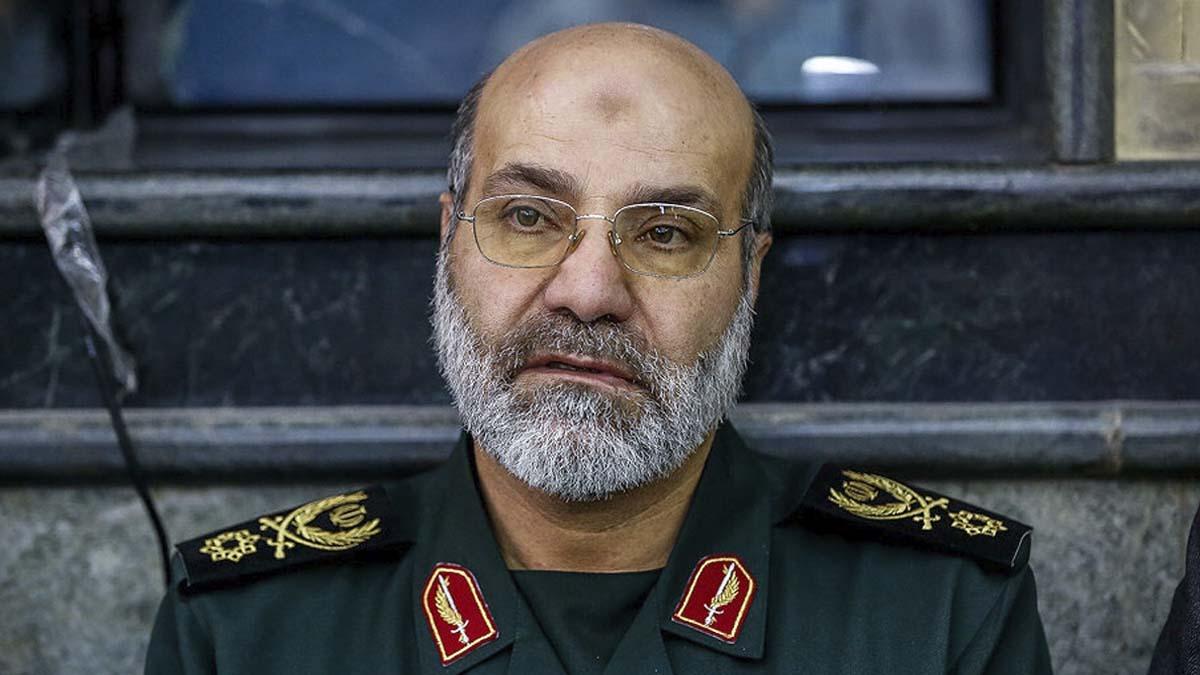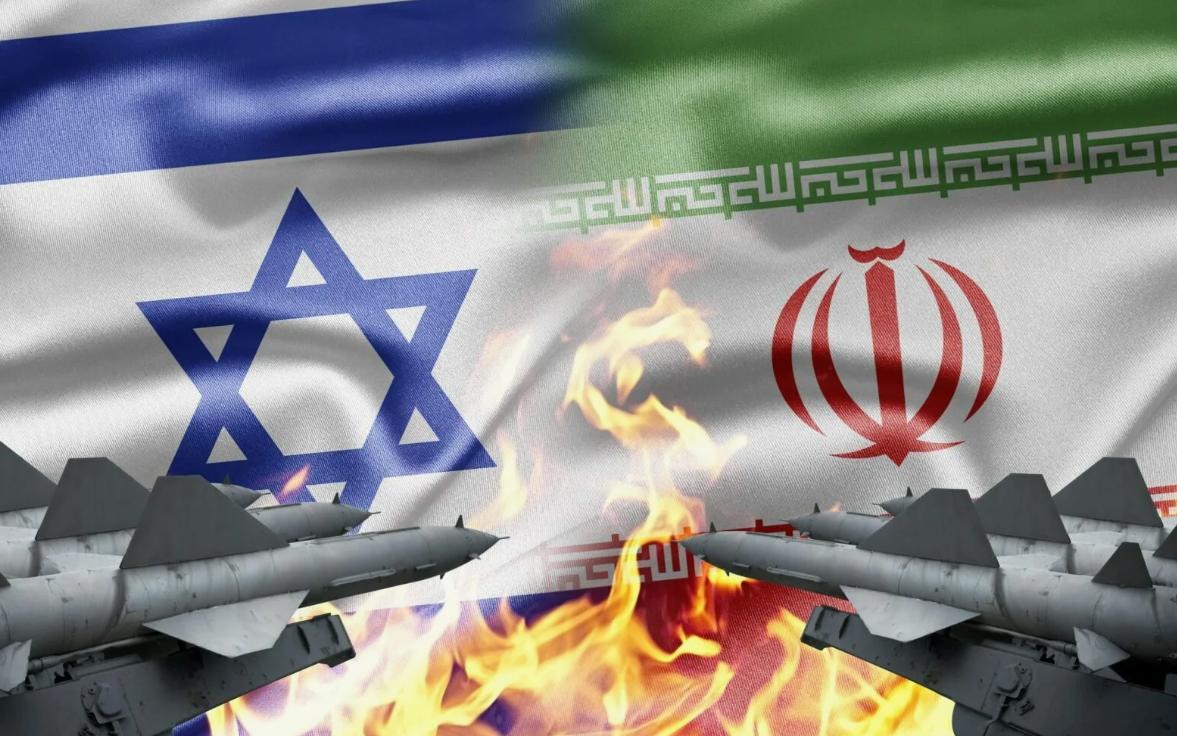The complexities of Israel-Iran dynamics Escalation or Restraint?
On April 1, an airstrike in Damascus killed Brigadier General Mohammad Reza Zahedi, commander of the Iranian Revolutionary Guard Corps (IRGC) Quds Force in Lebanon and Syria. As usual, Israel did not claim responsibility for the strike, neither claiming nor denying anything. According to reports, the building housing the Iranian consulate was hit by multiple missiles, resulting in its destruction.
Reuters reporters on the scene in the Mezzeh neighbourhood of Damascus saw emergency workers climbing through the rubble of a collapsed building inside a diplomatic compound adjacent to the main embassy building. Ambulances were parked outside. An Iranian flag hung on a pole in front of the rubble. The Syrian Foreign Minister and Interior Minister were seen at the scene.
The IRGC officially acknowledged the deaths of seven of its high-ranking officers, among them General Zahedi.

In order not to be confused by the Iranian system of military governance and to appreciate the magnitude of what has happened, a few things should be kept in mind. The IRGC is a second Iranian army with an independent command, where the most religious officers and soldiers are selected to serve. But the IRGC is also more than an army. It is a network of intelligence agencies, Basij militias designed to disperse protesters, and a super-corporation that controls, directly or through proxies and relatives, about half of Iran's economy. Iranian courts, prosecutors' offices, and a large part of ministries and agencies are under the organisation's control. It is no exaggeration to say that the IRGC is the system of the deep state, the core of Iran's political and economic system, which reports only to the supreme leader, Ayatollah Ali Khamenei, and at the same time ensures his control over the country.
The Quds Force (or Qods Force - the word in this case means "Jerusalem") is an elite unit of the IRGC that oversees Iran's external covert and military operations. But in fact, the organization has great influence on the entire foreign policy of Iran. The previous head of the Quds Force, Qasem Soleimani, was sometimes called Iran's second-in-command after the Supreme Leader. He was killed on January 3, 2020 by an American missile at Baghdad airport.
Although General Zahedi did not have the same influence as Soleimani, he reported directly to Qods Force commander Ismail Qaani and was in charge of all Iranian operations in Lebanon and Syria. He became the highest-ranking Iranian killed since the start of the current war, even higher than Syed Reza Mousavi, who was killed in December, according to the Israeli publication The Jerusalem Post. The head of the Institute for National Security Studies (INSS), Tamir Himan, said the following about what happened: “This is the most serious liquidation since the destruction of Soleimani. We are talking about the commander of the northern front of the Quds Force.” The Iranian ambassador to Syria, in turn, said: “The Iranian response will be very tough.”
So, the Israelis killed one of the most senior leaders of Iran's armed forces. Just as importantly, they destroyed the Iranian consulate in Damascus with a missile strike. The consulate area is considered part of the country's territory, and what happened means nothing more and nothing less than an attack on the Iranian state itself. Why would Israel do this? There are several reasons.
Since October 7 last year, the Israeli military has been fighting Iranian allies on multiple fronts. They storm the Gaza Strip, where they are opposed by Palestinian Hamas. At the same time, another Iran-linked group, the Lebanese Hezbollah, is shelling Israeli territory in the north, and the Israeli military, in turn, is striking Hezbollah and Iranian positions in Lebanon and Syria. In particular, they constantly attack airfields in Syria to prevent Iran from transporting precision weapons for Hezbollah. Thus, the new strikes are part of the Israeli military confrontation with Iran. But there is probably something more behind this.
The US, which is an ally of Israel, at the same time restrains it. They are negative about the possibility that Israel will storm the Palestinian city of Rafah in Gaza, where both the remaining combat-ready Hamas units and about 1.5 million Palestinian refugees have accumulated. The Americans are also slowing down Israeli operations in Lebanon and at the same time trying to act as a mediator between Israel and Hezbollah on the issue of delimiting disputed areas between them. The US does not want an escalation of war in the Middle East, where its bases and allies are located, as America faces elections in November and the Biden administration is keen to avoid surprises and additional threats.

For Israel's leader, Benjamin Netanyahu, the situation is just the opposite. His reputation in Israel has been badly shaken since Hamas was able to infiltrate Israeli territory and kill 1,200 Israeli citizens on October 7 last year. For Netanyahu, the long war must defeat Hamas, Hezbollah and Iran behind them in a major way, so that October 7 will be overshadowed in public memory and Netanyahu himself will be seen as a successful military and national leader as a result of the war. The Israeli strikes on the consulate in Damascus and the assassination of Iranian General Zahedi must be understood in this context.
A fork in the road has emerged. There are two possible outcomes, and both seem convenient for Netanyahu. If Iran responds with hard rocket strikes against Israel - strikes that it or its ally, Lebanon's Hezbollah, would launch, Iran would thereby give Netanyahu carte blanche to launch large-scale operations in Lebanon and Syria, and maybe even bomb Tehran. In that case, the US, which is still Israel's ally and which has warned Iran, saying it should refrain from attacking Israel, may not be able to stop Israel. Tehran realises this too, and there is no desire there to be attacked by the high-tech Israeli air force. Iran's leaders want to live and they want to keep Iran's defence and nuclear industries intact.
However, if Iran does not respond, it will show its weakness and thus give carte blanche for more Israeli attacks on any Iranian targets and dignitaries. This, too, looks like a threat. Most likely, Tehran will refrain from a large-scale retaliatory strike, but then its credibility will suffer and the threat of similar Israeli operations will increase.
These are precisely the goals of the Israeli leadership. It is trying to put Iran in the most uncomfortable position possible, to force its leadership and its proxy, the Lebanese Hezbollah, to back down and not to prevent it from seeing it through to the end, i.e. to the complete elimination of Hamas in Gaza.








